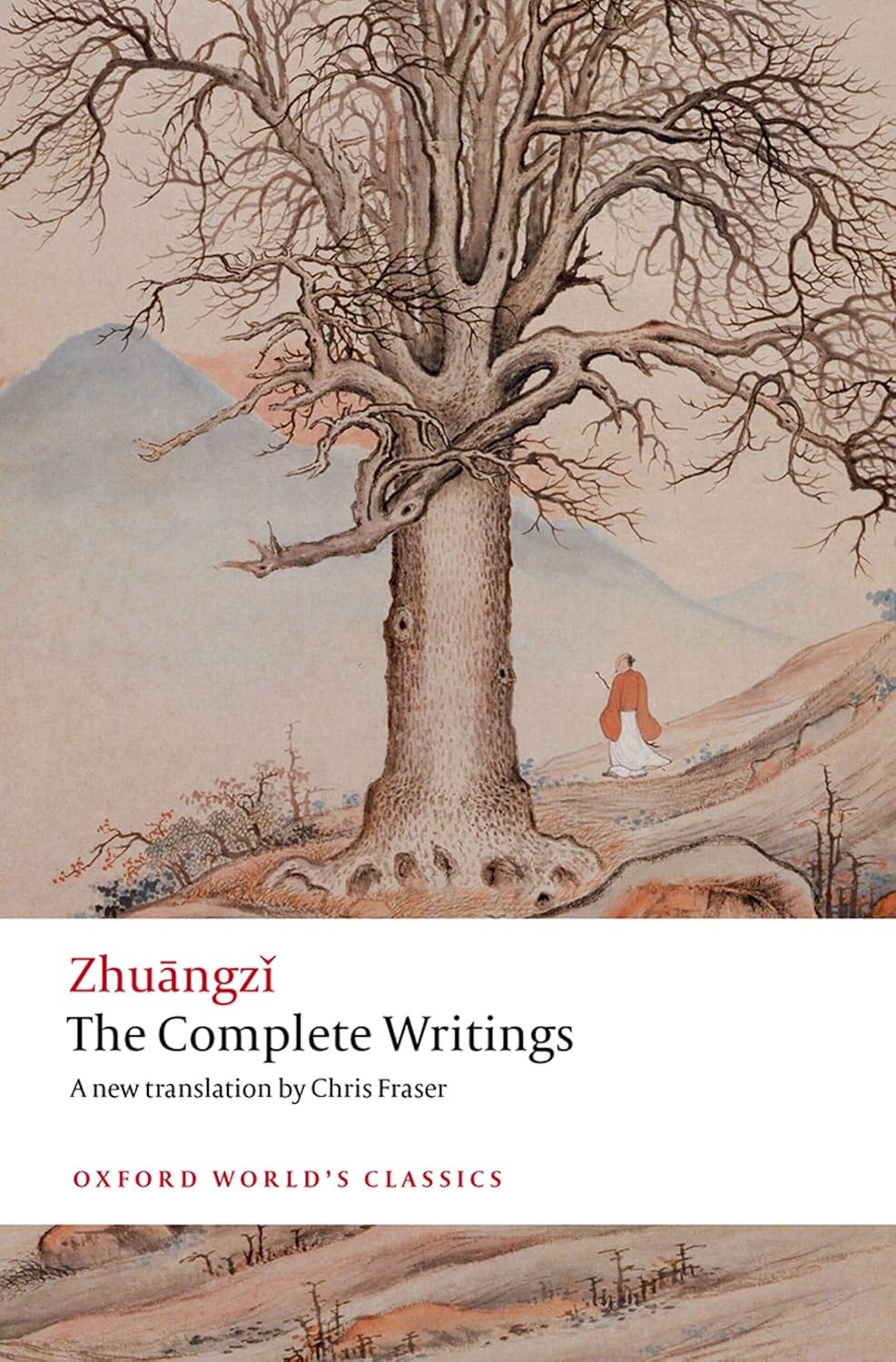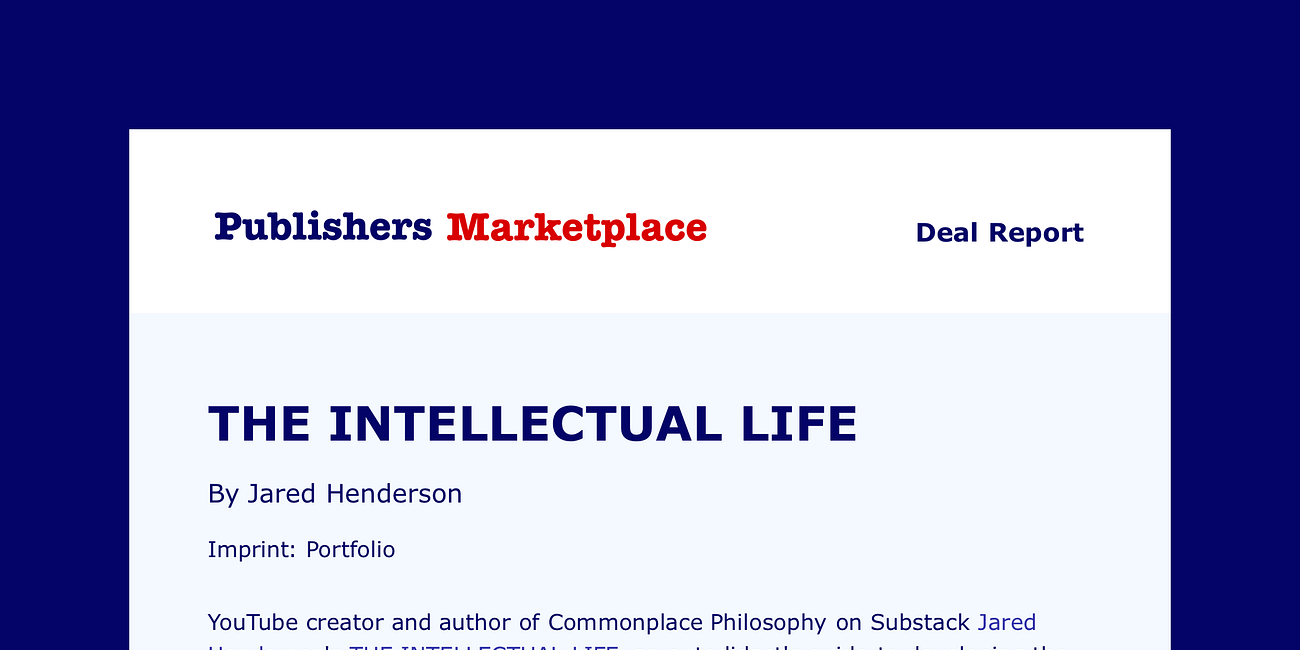Sunday mornings have recently been dedicated to providing a weekly update about the channel and the book (along with some life updates); that will still happen today, but at the end of this post. We’ll start by talking about Zhuangzi.
Zhuang Zhou, who we commonly call Zhuangzi (or Chuang Tzu), is the writer of the book that we have come to call the Zhuangzi. (Chinese philosophy has a tendency to call a book by the name of the author. Thus, the Tao Te Ching is sometimes called the Laozi.) His writing makes up roughly half of the foundational texts of Taoism, though the Taoist scriptural canon is vast.
Because the Zhuangzi is not structured like a typical philosophical text, at least by Western standards, our discussion will have a slightly different structure as well. I’ll post my weekly reflection, but all of this will be significantly more tentative. I am, alas, a complete beginner when it comes to Chinese philosophy. (My wife is Chinese and a philosopher, but she stresses that she is not a Chinese philosopher; she wrote a dissertation in metaethics.) This is a very exploratory installment of the book club.
Why choose the Zhuangzi? In part, I wanted to read it — it represents a gap in my knowledge. But there is another, more tentative reason.
You might know that I am very interested in the problem of attention. I’ve wanted to move beyond talk about smartphones and attention spans, however, and one fruitful avenue I’ve found is to look to contemplative traditions. I’m most familiar with Christianity, particularly in its Eastern form; that was why I was reading Graiver’s Asceticism of the Mind.
Asceticism of the Mind
When Christian ascetics wanted to devote themselves to God, they fled to the desert. Many of their ideas have been preserved in texts like Sayings of the Desert Fathers and the collection of writings we call the Philokalia. In those books, you see not only a wide array of theological reflection, but also an amazing collection of insights into the working of the human mind. Like William James and Sigmund Freud in the second millennium, these first-millennium writers engaged in prolonged and intense self-reflection, trying to understand what it was that kept them from their task.
But of course, Christianity is not the only contemplative tradition. Given some of my other interests, I suspect that I need to read more Taoism, anyway. So, this book club presents an opportunity.
Translation
We are reading the Fraser translation of Zhuangzi. Other translations may choose to structure the text differently; if you use another translation, I cannot guarantee that you will be able to follow along easily. The Fraser translation is available from Oxford World’s Classics; there are digital versions available, too.
I chose this translation after consulting with some readers I respect who are more knowledgeable about Chinese philosophy, including some academics. Fraser’s work is generally held in high regard.
The Schedule
The Inner Books
August 11: Books 1 - 4
August 17: Members-Only Zoom Call, 8-9:30 PM Eastern (we’ll discuss all the Inner Books)
August 18: Books 5 - 7
The Outer Books
August 25: Books 8-12
September 1: Books 13 - 16
September 8: Books 17 - 22
September 12: Members-Only Zoom Call, 2-3:30 PM Eastern
The Mixed Books
September 15: Books 23 - 25
September 22: Books 26 - 29
September 28: Members-Only Zoom Call, 8-9:30 PM Eastern
September 29: Books 30 - 33
The structure of this schedule is simple enough. Zhuangzi’s writings are divided into three sets: the Inner Books, the Outer Books, and the Mixed Books. We’ll have a weekly post featuring four to six books, so it will take us two or three weeks to get through each set of books. By the end of September, we’ll be done. (We’ll start Aristotle’s Politics in mid-October and try to finish it by the end of the year.)
At the end of each set of books, we’ll have a Zoom call. August 17 and September 28 are at the usual times, Sundays at 8 PM Eastern. Since that’s difficult for Europeans and others, I’ve also scheduled one on a Friday for September 12. Those calls are for paid subscribers. The quality of the conversation has been getting better and better, so I think you should join!
There is, however, one complication. At some point either in August or September, my wife is giving birth to our daughter. There is a chance that could disrupt these calls. I’ll communicate via Substack chat if I have to reschedule the calls.
The Weekly Update
August came too soon. I have some traveling to do for a project, so I’ll be in Washington, D.C. in a little over a week. I have interviews scheduled for that same project, too, some in Austin and some online. It is a busy and exciting time.
But my mind is occupied primarily by the fact that Baby 2 is nearly here.
You may have noticed that there were no new posts this week. Since we just finished The Remains of the Day, I took a small break — but that was primarily to help around the house to prepare for a baby and to work on my book.
We’ll be back to normal next week, and of course we’ll be starting Zhuangzi very soon.
Channel Update
On the channel, I released a new video:
This video starts with talking about AI at university, a topic you likely know I have strong feelings about. But I did not want to end there. I did not want it to merely be a rant about AI. So, the majority of the video is about something else: the incentives of modern universities.
AI, I’ve come to think, poses no unique threat to university education; it exacerbates the problems that were already present. It makes things considerably worse, yes, but that’s because of the incentive structures of universities. (Similar incentive structures are also present online, helping to explain why so many writers and creators are using AI on Substack, YouTube, X, etc.) If we don’t fix those structures, then I don’t know that we’ll ever ‘solve’ the AI problem.
In about two weeks, my video on Plato’s Republic will be out. I finished it earlier this week and posted it on Nebula, as all my videos go up there early now. I can see from early analytics that this is not going to be a massive hit; that is OK; I expected this. It is an 80-minute guide to the Republic, so it doesn’t have the same viral clickability of some of my other videos. But that is why it matters! The 20-minute essays about cultural issues pay the bills, but I want these longer philosophy videos to be what makes a lasting impact.
What I see, usually, is that these videos do not do well immediately. But they seem to have staying power, and they eventually find an audience. It is also those videos that cause people to reach out to me and thank me for my work.
Book Update
New word count: 27,000 words, meaning I wrote 3,700 words this week. I had hoped to get to 30,000 words by now, but I’m fairly close. I plan to write tonight, so perhaps I’ll make it. I’m sending pages to my editor on Monday morning.
This week’s writing was fun. I was writing about Evagrius, Kant, Montaigne, and Ursula K. Le Guin, all centered on the topic of the order of life. How we arrange our days, and our lives more broadly, is central to living the good life; we have to save this topic from the productivity people and show that it matters at a deeper level. I think I’m making some progress.
For those who don’t know about the book, take a look at this post:
It's official: I'm writing a book, and now I can talk more about it
Since the contract is signed and the deal has been reported in Publishers Marketplace, I can finally (officially) say that I am writing a book that will be published by Portfolio, an imprint of Penguin Random House.
Things Worth Reading
On Twitter, Derek Thompson posted a link to this paper on LLM-assisted writing in science writing, specifically biomedical publications. It’s worth reading. Here’s the abstract:
Large language models (LLMs) like ChatGPT can generate and revise text with human-level performance. These models come with clear limitations, can produce inaccurate information, and reinforce existing biases. Yet, many scientists use them for their scholarly writing. But how widespread is such LLM usage in the academic literature? To answer this question for the field of biomedical research, we present an unbiased, large-scale approach: We study vocabulary changes in more than 15 million biomedical abstracts from 2010 to 2024 indexed by PubMed and show how the appearance of LLMs led to an abrupt increase in the frequency of certain style words. This excess word analysis suggests that at least 13.5% of 2024 abstracts were processed with LLMs. This lower bound differed across disciplines, countries, and journals, reaching 40% for some subcorpora. We show that LLMs have had an unprecedented impact on scientific writing in biomedical research, surpassing the effect of major world events such as the COVID pandemic.
Using linguistic analysis, researchers now estimate that 13.5% of papers (or at least their abstracts) are being written using LLMs.
I always recommend the work of my friend
, a very talented novelist and a fast-growing writer here on Substack. He’s earned a reputation for his writer profiles over at The Metropolitan Review, but his own newsletter is certainly worth the read. You never know where his writing will go, but it is always a fun ride.Iris Truong writes primarily about Asian art. In this short piece, she offers a quick guide to Asian literature. I was familiar with these names, though I’d only read Murakami, and I’ve decided to read Kang and Yoshimoto soon.






It might be helpful to read the introduction for this work, because it explains why Fraser included and ordered the texts in the book. Also, read along with a finger in the Notes in the back because the historical references will helpful.
Is anyone else having difficulty locating a Chris Fraser edition? I ordered one two weeks ago, but it seems to be lost in the ether. Other print copies sources are listing a $90 price. Jeez. I can get a digital version but generally hate reading on my phone. Let me know if you’ve found a copy.